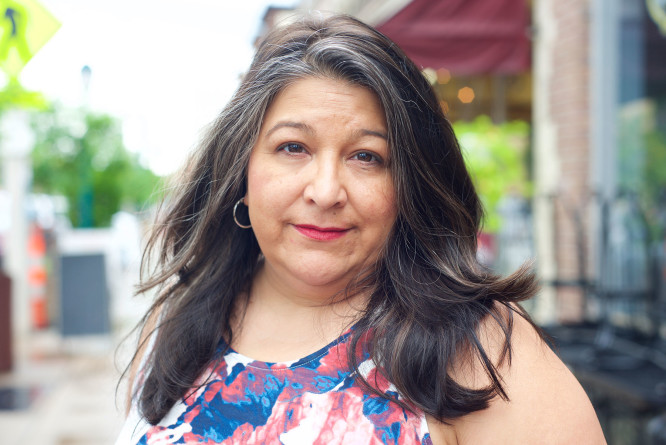Preventing Conflicts of Interest
The expert testimony, research, scholarship, and lived experience collected by the Commission revealed the following:
- In the current 21st Judicial Circuit municipal court system (which covers St. Louis County), attorneys often serve in multiple roles across multiple jurisdictions. According to data compiled in March 2015, 13 attorneys in St. Louis County have positions in three or more municipalities, and 20 hold positions in two municipalities (Bouscaren, 2015). Of these, nine attorneys work as a judge in one municipality and a prosecutor in another (Bouscaren, 2015).
- The same study showed that “Three St. Louis-area firms provide prosecutors or judges for more than a quarter of the county’s municipal courts, from Bel Nor to Valley Park” (Bouscaren, 2015).
- Of the 83 municipalities in the St. Louis area, all but 14 had at least one connection to another municipality (Bouscaren, 2015). A “connection” is “sharing a judge or prosecutor…or having a judge or prosecutor who works for the same law firm as a judge or prosecutor in another municipality” (Bouscaren, 2015).
- Perceived conflicts of interest, whether substantial or inconsequential, sow seeds of distrust:“I had a felony criminal case in state court a few weeks ago,’ says a local defense attorney, in a Washington Post article, “Sometimes criminal cases can get contentious. You have to do everything you can to defend your client, and sometime your interaction with a prosecutor can get combative. A few days later, I was representing a client who had a few warrants in a municipal court where the same prosecutor I was just battling with is now the judge. Is my client is going to get a fair hearing? You hope so. But it sure looks like a conflict to me” (Balko, 2014).
- Other states use models that address conflicts of interest:
- The Colorado Code of Judicial Conduct prohibits a part-time judge from practicing law in “the court on which the judge serves or in any comparable level court in the same judicial district on which the judge serves or in any court subject to the appellate jurisdiction of the court on which the judge serves” (Colorado Supreme Court).
- The New York Administrative Rules of the Unified Court System & Uniform Rules of the Trial Courts state that a part-time judge “shall not practice law in the court on which the judge serves, or in any other court in the county in which his or her court is located” (New York State Unified Court System). Furthermore, a part-time judge “ shall not permit his or her partners or associates to practice law in the court in which he or she is a judge, and shall not permit the practice of law in his or her court by the law partners or associates of another judge of the same court who is permitted to practice law. . .” (New York State Unified Court System).
- The Ohio Code of Judicial Conduct states:“A part-time judge shall not practice law . . . in any court subject to the appellate jurisdiction of the court on which the judge serves . . . .” (Supreme Court of Ohio).
- The Nevada Code of Judicial Conduct states:“A continuing part-time judge shall not practice law in the court on which the judge serves or in any court subject to the appellate jurisdiction of the court on which the judge serves . . .” (Nevada State Supreme Court).
- The National District Attorneys Association provides in its model rules that “part-time prosecutors should not represent persons in criminal matters in other jurisdictions. This is because of the potential for conflicts with his or her duties as a prosecutor and because of the perception that such representation would decrease his or her dedication to the performance of prosecutorial functions” (National Prosecution Standards Third Edition).
These findings prompted the Commission to draft several calls to action for additional conflict-of-interest rules and changes to the application of existing rules.
To that end, the Commission issues the calls to action below.
Suggested Reading List
Freivogel, W. (2014). Two visions of municipal court reform. St. Louis Public Radio. Retrieved from https://news.stlpublicradio.org/post/two-visions-municipal-court-reform
Lippmann, R. (2015). Despite Ferguson, change comes slowly to Mo. municipal courts. NPR. Retrieved fromhttps://www.npr.org/2015/02/08/384695759/change-comes-slowly-to-missouri-municipal-courts
Citations
- Balko, R. (2014). How municipalities in St. Louis County, Mo., profit from poverty. Washington Post. Retrieved fromhttps://www.washingtonpost.com/news/the-watch/wp/2014/09/03/how-st-louis-county-missouri-profits-from-poverty/
- Bouscaren, D. (2015). Overlapping judges, prosecutors weave tangled web in St. Louis County municipal courts. St. Louis Public Radio. Retrieved from https://news.stlpublicradio.org/post/overlapping-judges-prosecutors-weave-tangled-web-st-louis-county-municipal-courts
- Colorado Supreme Court. The Colorado Rules of Judicial Discipline; Colorado Code of Judicial Conduct Chapter 24 III. Retrieved from:https://1.usa.gov/1LqEPhH
- National District Attorneys Association (NDAA). National prosecution standards. Retrieved from:https://bit.ly/1MM4Mv9
- Nevada State Supreme Court. Code of judicial conduct Part VI Application (III)(c). Retrieved from:https://www.leg.state.nv.us/courtrules/scr_cjc.html
- New York State Unified Court System. 22 NYCRR 100.6(B). Retrieved from:https://www.nycourts.gov/rules/chiefadmin/100.shtml
- Supreme Court of Ohio. Ohio code of judicial conduct 2009 III (B). Retrieved from:https://www.supremecourt.ohio.gov/LegalResources/Rules/conduct/judcond0309.pdf
- Missouri Supreme Court. Supreme Court rules, Office of State Courts Administrator, Missouri. Retrieved fromhttps://www.courts.mo.gov/courts/ClerkHandbooksP2RulesOnly.nsf/c0c6ffa99df4993f86256ba50057dcb8/be48019f16497ddf86256ca600521208?OpenDocument
- Tokarz, K. Stragand, S. Blanton, J., & Terrell, J. Forthcoming 2015. Moving beyond ferguson:The growing imperative to revamp our nation’s municipal courts and develop community justice centers to rebuild public trust, repair seriously fractured community relations, and advance restorative justice. Washington University Journal of Law & Policy.


#FwdThruFerguson